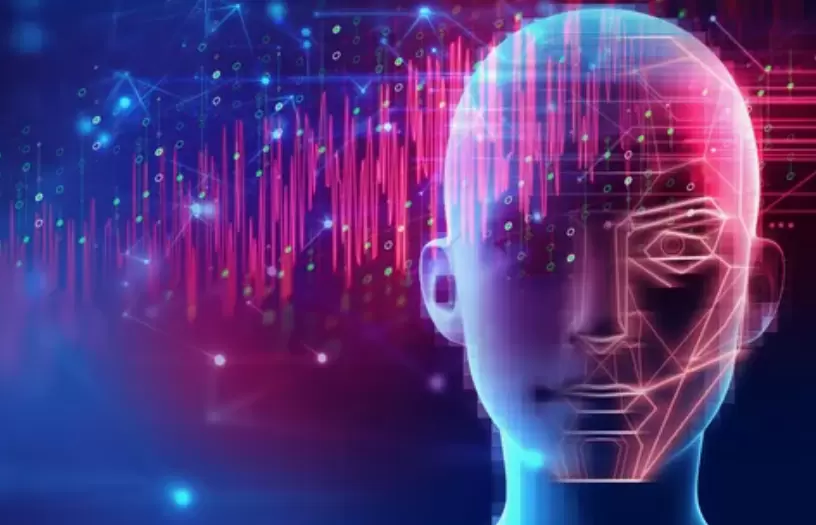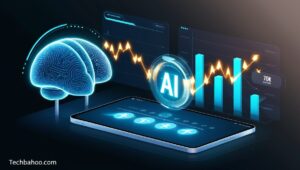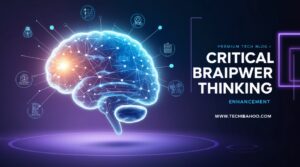Quantum computing is poised to revolutionize artificial intelligence in profound methods.
As researchers preserve pushing the limits of what’s possible with today’s classical hardware, the appearance of purposeful quantum computer systems should offer an exponential improvement that unleashes whole new levels of development.
This article will explore several key areas where experts expect quantum technologies to exert significant influence on the future of AI.
Harnessing Exponentially Greater Processing Power for Deep Learning:
Developing deep brand new models calls for tremendous computational assets. From large datasets with billions cutting edge facts points to complex neural networks with hundreds today’s layers.
Today’s most sophisticated AI structures push the very limits cutting edge our fastest supercomputers.
As any AI researcher knows all too well, there simply isn’t enough sheer processing power available from classical silicon chips alone to continue scaling our deep learning capabilities indefinitely.
| Classical computing scaling | Quantum computing scaling |
| Polynomial scaling Each new generation of chips provides a modest increase in FLOPS | Exponential scaling Quantum bits (qubits) can perform operations in superposition, increasing problem solving ability exponentially with more qubits |
Quantum computing offers a radically different approach that could unlock vastly more processing muscle for deep learning.
By harnessing the fundamental laws of quantum mechanics, quantum computers are able to have their qubits exist in superposition and entanglement states that allow exponential increases in computing capacity compared to classical machines.
With just 50 to 100 well controlled qubits, a quantum computer would surpass the processing abilities of today’s most powerful supercomputers.
This additional “horsepower” would give AI researchers the means to develop even deeper, more complex neural network models incorporating billions or trillions more parameters.
Applications that would hugely benefit from this boost include computer vision requiring massive datasets of pixels, natural language models analyzing enormous language corpora, and scientific simulations handling immense volumes of data.
Any field touching on deep learning from medicine to materials science to engineering could see giant leaps by taking full advantage of scalable quantum processors.
Indeed, quantum computing may provide just the fuel needed to elevate deep learning to a whole new transformative tier.
Emerging Quantum Machine Learning Algorithms:
Beyond classical deep learning, quantum machine learning offers entirely new algorithms that exploit distinctively quantum phenomena for intelligent data analysis. Some pioneering examples include:
- Quantum Support Vector Machines that require far fewer calculations to analyze large datasets, achieving quadratic or even exponential speedups over classical SVM algorithms.
- Variational Quantum Classifiers using a quantum computer to express and optimize complex functions able to represent highly non linear decision boundaries better than deep neural networks.
- Quantum Clustering circuits capable of automatically finding optimal clusterings embedded in datasets without any prior information about cluster sizes or numbers.
- Quantum Boltzmann Machines that may prove capable of modeling distributions intractable even for classical deep Belief Networks and help address challenges like transfer, causality and compositionality learning.
As with any nascent technology, scaling challenges remain before these algorithms can be practically applied.
But conceptually they demonstrate the ability of quantum mechanics to perform certain types of machine learning exponentially faster than their classical counterparts.
This raises the very real possibility of hybrid quantum classical systems emerging that combine quantum algorithm acceleration with conventional deep learning frameworks.
Such blended quantum machine learning approaches could open doors to whole new domains of intelligent applications.
Powering Optimization for Planning and Scheduling with Quantum Approaches:
Many important real world AI problems involve complex optimization challenges: scheduling jobs and tasks, routing vehicles, determining strategies and game plans, configuring industrial processes, and more.
Such real world problems are often so computationally demanding that even the most advanced classical optimization solvers struggle and may produce low quality solutions.
Quantum computing has emerged as ideally suited for NP hard optimization problems due to quantum approaches like amplitude amplification and the quantum approximate optimization algorithm (QAOA).
In fact, some studies have shown QAOA outperforming classical solvers on certain scheduling optimization problems.
Other quantum optimization techniques also show promise for AI applications involving qubit placement optimization, portfolio management, drug discovery campaigns, and more.
As these quantum optimization algorithms mature, they could power next generation intelligent planning and scheduling assistants with far superior abilities compared to today’s classical AI planners using linear programming or other heuristics.
This may hugely transform domains like logistics, infrastructure, healthcare and transportation through greatly boosted optimization driven decision making.
Applications like autonomous industrial robots, smart grids, traffic management, and supply chain coordination could all benefit tremendously.
Augmenting Embedded and Edge Artificial Intelligence with Quantum Sensors:
While bulk computing enhancements and new algorithms are promising, embedding quantum technologies more directly into AI systems also holds potential.
Novel devices like quantum gravimeters, magnetometers and radar promise ultra precise detection and measurement far exceeding what’s possible with even the most advanced classical sensors.
When shrunken to nanoscale sizes and manufactured affordably, these quantum sensors may play a significant supporting role in future AI powered systems.
For example, self driving cars navigating through GPS denied situations could immensely benefit from exceedingly accurate 3D localization and mapping capabilities provided by onboard quantum gravimeters.
Edge devices like smart cameras, household robots and industrial drones equipped with quantum radar may gain superhuman perception abilities.
Quantum sensors could even help BMI devices noninvasively monitor brain activity at resolutions deep enough for decoding complex thoughts.
By complementing edge/embedded AI with revolutionary new forms of sensing, quantum promises to greatly expand the scope of intelligent applications while pushing performance ever higher even without cloud connectivity.
This synergy holds potential to reinvent fields as diverse as infrastructure, healthcare, transportation and more.
Room for Improvement but a Bright Quantum Powered Artificial Intelligence Future Awaits:
Undeniably, major challenges remain in developing sufficiently large and stable quantum computers to realize their full potential.
Scaling quantum hardware to the sizes required, overcoming noise, and developing higher level quantum software tools are all active areas of research progress.
Once these roadblocks clear, it’s reasonable to expect an accelerated burst of quantum driven advances across the AI field similar to previous paradigm shifts like the integrated circuit.
The fusion of quantum technologies and artificial intelligence holds immense promise to reinvent automation, transportation, energy, materials science, drug discovery, genomics, manufacturing and many other domains that will define humanity’s future.
Some experts even believe quantum AI may give rise to stronger than human, super intelligent systems ushering in a revolutionary new era.
While formidable hurdles remain, with continued progress, the transformative dawn of quantum AI application may be nearer than most anticipate.
Undoubtedly, quantum technologies will significantly reshape AI’s trajectory for many years to come and profoundly impact life in the modern world.
FAQ
Q. How quantum computers may play an important role in artificial intelligence?
A. Quantum computers can analyze massive datasets much faster, leading to more accurate and powerful AI models.
Q. Will quantum computing speed up AI?
A. Quantum computing could impact AI.
Q. How will quantum computing affect AI applications?
A. Enhances AI by increasing its speed, efficiency and accuracy.
Q. How will quantum computing affect technology?
A. Quantum computer powered algorithms will become more complex and adaptable as they process data faster.
Q. Who is working on quantum AI?
A. Quantum computer scientists and software engineers.
Conclusion:
While quantum computing is still in its early days of development and scaling challenges persist, the opportunity it represents for artificial intelligence is vast.
The exponential increases in processing power, new machine learning algorithms, improved optimization capabilities, and augmented sensors all promise to power unforeseen leaps forward.
Many experts predict the fusion of quantum and AI could drive whole new phases of innovation across virtually all sectors of the economy and society.
By overcoming existing hurdles and continuing to harness the unique aspects of quantum, we may see even more intelligent and transformative applications emerge that improve billions of lives worldwide.
The full possibilities that will flower at the intersection of these two game changing technologies remain as exciting as they are difficult to envision in today’s terms. Only time will tell what new frontiers of discovery may open.













